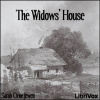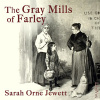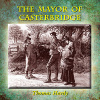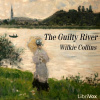Sarah Orne Jewett - Country of the Pointed Firs
Sarah Orne Jewett
The Country of the Pointed Firs (1896) is considered Jewett’s finest work, described by Henry James as her “beautiful little quantum of achievement.” Despite James’s diminutives, the novel remains a classic. Because it is loosely structured, many critics view the book not as a novel, but a series of sketches; however, its structure is unified through both setting and theme. Jewett herself felt that her strengths as a writer lay not in plot development or dramatic tension, but in character development. Indeed, she determined early in her career to preserve a disappearing way of life, and her novel can be read as a study of the effects of isolation and hardship on the inhabitants who lived in the decaying fishing villages along the Maine coast.
(summary from Gutenberg e-text)


















No comments